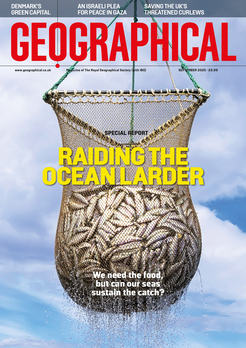
Removal of more than 1 million oil barrels on Yemen supertanker now underway, but project requires more funding to complete
by Victoria Heath
Last week, the United Nations began the challenging operation of removing more than one million oil barrels from the FSO Safer, a supertanker moored off Yemen’s Red Sea coast.
After two years of fundraising, project development and political groundwork led by UN Resident and Humanitarian Coordinator for Yemen, David Gressly, the project begins in order to prevent a vast oil spill in what would be a serious humanitarian and environmental crisis.
More than 200,000 fishing jobs in Yemen would be wiped out overnight, with fish stocks taking 25 years to recover if a spill was to occur. Several ports would close, cutting off fuel, life-saving supplies and food, and communities could face exposure to polluted air if a fire broke out. Internationally, a spill would affect tourism in the Red Sea area and shipping routes through the Suez Canal and Bab al-Mandab Strait. Evidently, it was urgent that a project to safely remove the oil from the supertanker was required.
‘Today marks a critical step in the operation to remove the threat posed by the FSO Safer,’ said UN Development Programme Administrator Achim Steiner. ‘This is a proud moment for the United Nations and for the UN Development Programme as the implementing partner for the emergency phase of the project to remove the oil. It is also a clear sign of what multilateral cooperation can achieve, and a prime example of the importance of prevention.’
The salvage support vessel Ndeavor, operated by lead marine salvage company SMIT, and contracted by the UN Development Programme (UNDP), will undertake the transfer of oil to a secure vessel.
Back in December 2021, UN senior management endorsed the plan to prevent a spill by transferring the oil to a secure vessel, and installing long-term replacement capacity for the FSO Safer.

Securing the remaining funds for project
But even after the oil transfer, the FSO Safer will still pose a significant environmental threat to Red Sea, as it continues to hold a considerable amount of residual oil.
Crucially, the project remains underfunded – with $29 million still needed in order to safely moor the replacement vessel to a catenary anchor leg mooring buoy, and to tow the Safer to a green recycling yard.
‘Member states, private companies and the general public have contributed $114 million to stop the Red Sea Spill, and so many other partners that have contributed expertise and advocated for this critical operation,’ said Gressly.
Gressly thanked the support of states, companies and the general public in their efforts to contribute to the project.
‘This is a great milestone, but we will not rest easy until the operation is completed. To do that we are counting on generous donors to close the remaining $29 million budget gap.’




